- Body lotion for dry skin: Clinically proven to help moisturize dry skin for 24 hours with Pro-Ceramide and glycerin; this moisturizing lotion helps strengthen your skin’s natural moisture barrier for healthier-looking, hydrated skin every day.
- Moisturizing lotion with shea butter: Lightweight, fast-absorbing formula enriched with shea butter and Pro-Ceramide; delivers non-greasy hydration and helps relieve dryness on face, hand, and body for all skin types, including sensitive skin.
- Body moisturizer and hand lotion: Non-comedogenic, allergy- and dermatologist-tested lotion is free of parabens, phthalates, and dyes; suitable for use as a face lotion, hand lotion, or body moisturizer for daily hydration and comfort.
- Face lotion for sensitive skin: Gentle, lightly scented formula hydrates without clogging pores; ideal for face, hand, and body use, this moisturizing lotion helps restore your skin’s moisture barrier and helps support sensitive skin care routines.
- Hydrating daily lotion: One 24 fl oz pump bottle of Lubriderm Daily Moisture Lotion + Pro_x0002_Ceramide provides fast-absorbing hydration; formulated for face, hand, and body to help maintain soft, healthy-looking skin.
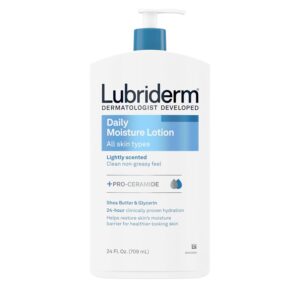 Lubriderm Daily Moisture Lotion
Lubriderm Daily Moisture Lotion$11.99
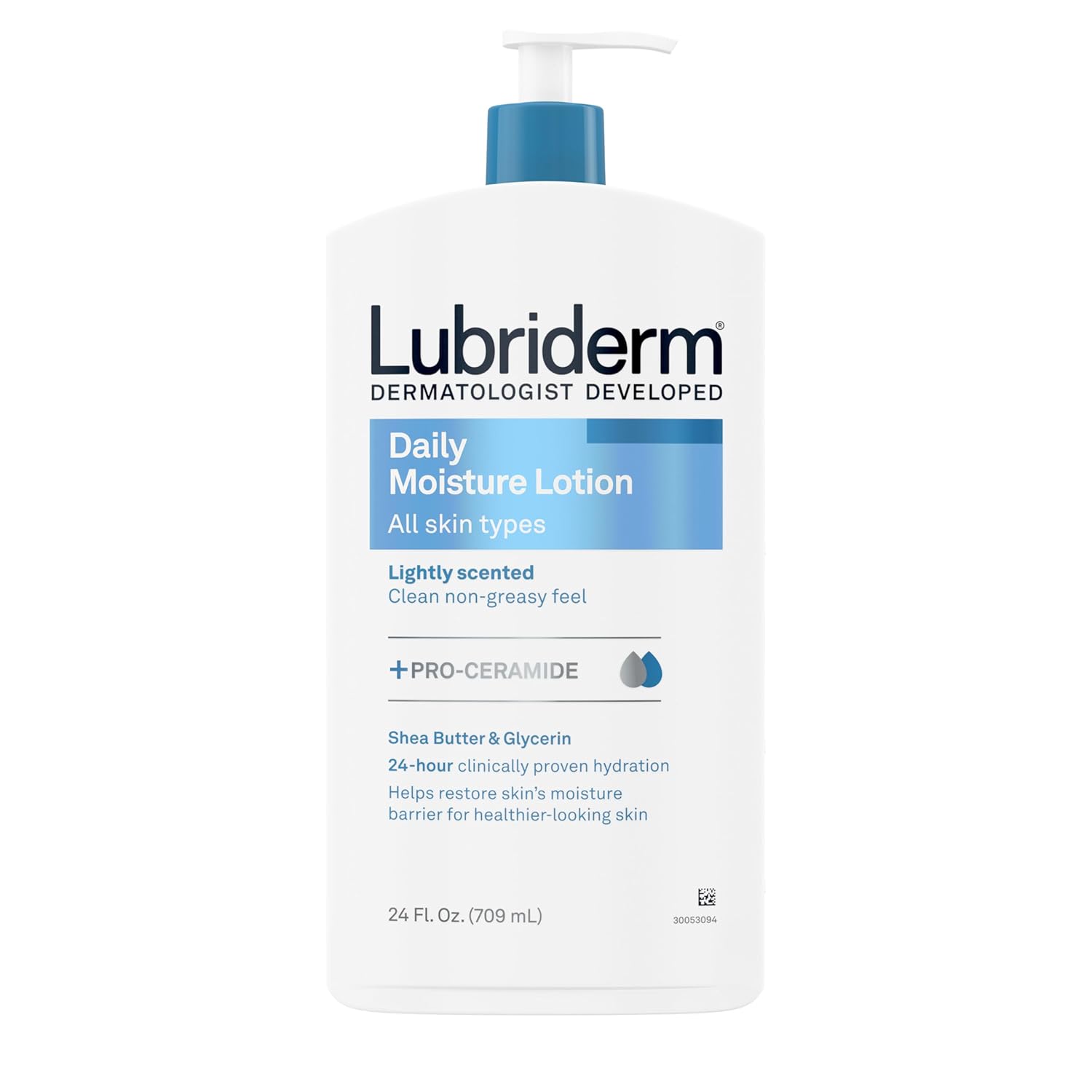
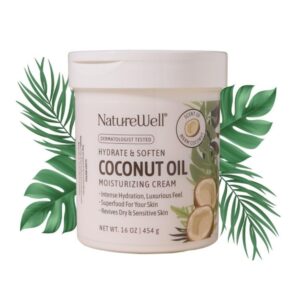
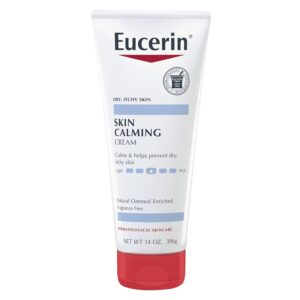
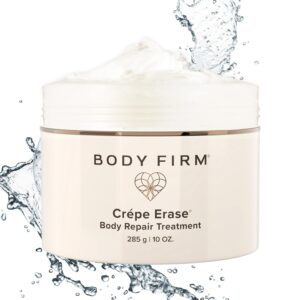
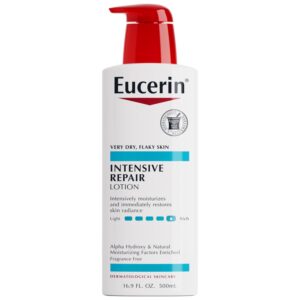
Reviews
There are no reviews yet.